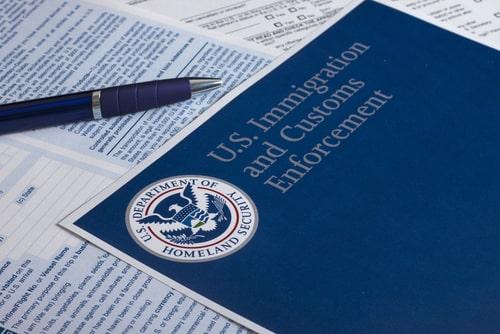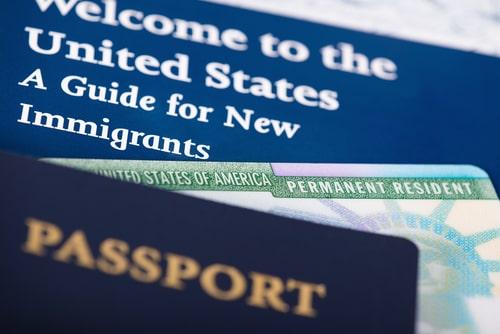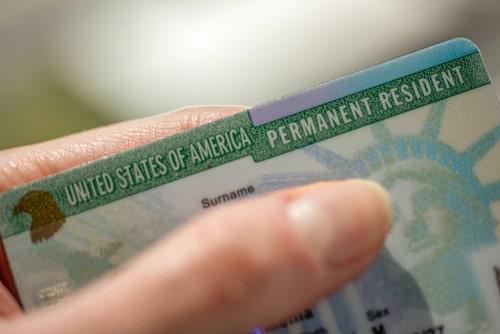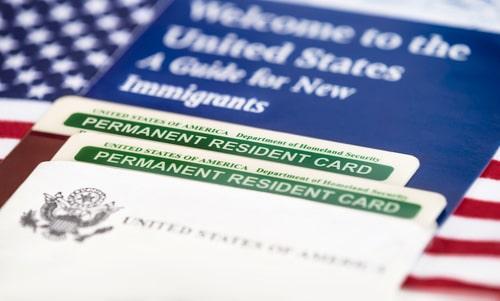Recent Blog Posts
What Are the Quotas for Family-Based Visas in the United States?
 Immigrants who wish to resettle in the United States and U.S. citizens or lawful permanent residents who wish to sponsor family members for immigration may struggle to understand their options and the laws that apply to them. In family-based immigration cases, different types of visas may be available depending on the status of the sponsor and their relationship with those who will be immigrating to the U.S. In addition to determining the appropriate types of visas, family members will need to understand the quotas that determine the number of visas that may be issued each year.
Immigrants who wish to resettle in the United States and U.S. citizens or lawful permanent residents who wish to sponsor family members for immigration may struggle to understand their options and the laws that apply to them. In family-based immigration cases, different types of visas may be available depending on the status of the sponsor and their relationship with those who will be immigrating to the U.S. In addition to determining the appropriate types of visas, family members will need to understand the quotas that determine the number of visas that may be issued each year.
Numerical Limits on Family-Based Visas
The United States sets strict annual limits for the number of family-based visas that will be available. Because of these limits, certain immigrants may experience lengthy wait times before they can receive approval for a visa. In some cases, they may need to wait for years or even decades.
When Are Immigrants Eligible for Provisional Unlawful Presence Waivers?
 Immigrating to the United States can be a daunting process. One of the biggest hurdles that many immigrants face is being able to stay in the country legally. Those who entered the United States without authorization or stayed in the country after the expiration of a visa may be concerned that they will be deemed "inadmissible" when applying for a visa or Green Card. However, certain types of waivers of inadmissibility may help address these issues. One of these is known as the provisional unlawful presence waiver. These provisional waivers are available in certain situations, and they may facilitate the process of receiving a visa that will give them authorization to enter the United States and remain in the country permanently.
Immigrating to the United States can be a daunting process. One of the biggest hurdles that many immigrants face is being able to stay in the country legally. Those who entered the United States without authorization or stayed in the country after the expiration of a visa may be concerned that they will be deemed "inadmissible" when applying for a visa or Green Card. However, certain types of waivers of inadmissibility may help address these issues. One of these is known as the provisional unlawful presence waiver. These provisional waivers are available in certain situations, and they may facilitate the process of receiving a visa that will give them authorization to enter the United States and remain in the country permanently.
What Are Provisional Unlawful Presence Waivers?
Applying for a Visa When Your Spouse Is Inside or Outside the U.S.

If you are a citizen of the United States, and you are married to a foreign spouse, you are likely looking at your options for applying for a family visa and ensuring that they can receive a Green Card and live with you in the U.S. on a permanent basis. This can be an intimidating process, but with careful planning, you can successfully apply for and receive a visa for your spouse. Here are some things to consider when applying for a visa when your spouse is either inside or outside of the U.S.:
Eligibility for Sponsoring a Spouse for Immigration
To sponsor your spouse for an immigrant visa, you must be at least 18 years old. While there is technically no age requirement for filing a visa application, you will need to file an Affidavit of Support along with the application, and this affidavit has an age requirement of 18. You must also have a permanent residence in the United States, and you must plan to continue living in the country for the foreseeable future.
Do Criminal Convictions Affect Eligibility for Visas or Green Cards?
Immigrants, including those who wish to come to the United States and those who are currently in the country and wish to obtain authorization for permanent residence, will need to be aware of the issues that could affect their ability to receive a visa or Green Card. There are certain factors that may lead to inadmissibility, which may prevent a person from receiving authorization to enter the U.S. or limit their ability to remain in the country. Criminal convictions are a common issue that can affect admissibility, and immigrants who have been convicted in the past will need to understand their options as they address issues related to immigration.
What Are the Requirements for Sponsoring Family Members for Immigration?

U.S. citizens and Green Card holders have the right to sponsor certain family members for immigration to the United States. This will allow a family to live together in a safe community and pursue the opportunities available to residents of the U.S., including earning income through employment and seeking an education. Family-based immigration involves a complex set of requirements that must be met in order for an immigrant to qualify for a visa and Green Card. By understanding the documents that must be filed and the information that will need to be submitted, a sponsoring family member can take the correct steps to bring their family members to live with them.
Eligibility Requirements
In order to be eligible to sponsor a family member for immigration, you must be either a U.S. citizen or a lawful permanent resident with a valid Green Card. You can only sponsor certain family members for immigration, and the types of visas that you can apply for will depend on your status and the specific relationships. If you are a U.S. citizen, you can sponsor your spouse, your children (as long as they are younger than 21 years old and are not married), and your parents for Immediate Relative visas, which are typically available with no quotas and no wait times. U.S. citizens can also sponsor unmarried adult children, married children, and siblings for Family Preference visas, although these visas have quotas and wait times, and they are issued according to an order of preference. If you are a Green Card holder, you can sponsor your spouse and unmarried minor children for Family Preference visas.
Adjustment of Status and Consular Processing: What Is the Difference?
 Understanding the differences between adjustment of status and consular processing is an important part of navigating the immigration process. Both options involve filing an application for a green card, but there are a few key differences that could make one option more suitable than the other depending on a person's specific circumstances. Immigrants and their family members can determine the proper steps to take by working with an attorney who is experienced in immigration law.
Understanding the differences between adjustment of status and consular processing is an important part of navigating the immigration process. Both options involve filing an application for a green card, but there are a few key differences that could make one option more suitable than the other depending on a person's specific circumstances. Immigrants and their family members can determine the proper steps to take by working with an attorney who is experienced in immigration law.
What Is Adjustment of Status?
Adjustment of status (AOS) is the process by which an immigrant may apply for a green card while already in the United States. It allows immigrants who have entered the country legally or, in some cases, those who have overstayed their visa to submit an application for lawful permanent resident (LPR) status without leaving the country.
Can a Person With Children Receive a Fiancé Visa?
 A fiancé visa allows a foreign national to travel to the United States in order to marry a U.S. citizen. However, when it comes to receiving a fiancé visa, there are certain issues that must be taken into consideration—including whether the foreign fiancé has children. By understanding the applicable immigration laws, a couple can make sure they take the correct steps to ensure that all family members will be able to live in the United States.
A fiancé visa allows a foreign national to travel to the United States in order to marry a U.S. citizen. However, when it comes to receiving a fiancé visa, there are certain issues that must be taken into consideration—including whether the foreign fiancé has children. By understanding the applicable immigration laws, a couple can make sure they take the correct steps to ensure that all family members will be able to live in the United States.
Applying for a K-1 Visa
K-1 fiancé visas are immigration visas that allow foreign fiancés of U.S. citizens to enter the United States for the purpose of getting married. In order to be eligible for a K-1 visa, the U.S. citizen and foreign national must meet certain requirements, including:
-
The couple must have met in person within two years before filing the immigration paperwork. However, this requirement may be waived in certain circumstances, such as when traveling to another country would involve extreme hardship for one or both parties or when meeting prior to getting married would violate a person's religious or cultural practices.
What Will Happen if My Conditional Green Card Expires?
 When an immigrant receives a Green Card, they are given lawful permanent resident status, allowing them to continue living in the U.S. indefinitely, work for U.S. employers, and travel both inside and outside the United States. However, some immigrants will initially qualify for conditional Green Cards that will be valid for two years. At the end of the two-year period, a person will need to take steps to remove the conditions on their Green Card, and if they fail to complete this process, their status as a lawful permanent resident will expire.
When an immigrant receives a Green Card, they are given lawful permanent resident status, allowing them to continue living in the U.S. indefinitely, work for U.S. employers, and travel both inside and outside the United States. However, some immigrants will initially qualify for conditional Green Cards that will be valid for two years. At the end of the two-year period, a person will need to take steps to remove the conditions on their Green Card, and if they fail to complete this process, their status as a lawful permanent resident will expire.
Repercussions of an Expired Card
If a conditional Green Card expires, a person will no longer have authorization to live and work in the United States. They may also lose certain rights and benefits, such as Social Security and Medicare benefits, travel privileges, and eligibility for government-funded programs. If a person loses their status as a lawful permanent resident, they may become eligible for deportation. It is important to take the correct steps to remove the conditions on permanent residence before the expiration date. In situations where a Green Card has expired, a person can consult with an attorney to determine their options. In some cases, it may be possible to renew a Green Card or remove the conditions on permanent residence after the expiration date has passed.
Can I Receive a Waiver of Inadmissibility When Applying for a Visa?
The process of applying for an immigrant visa or a green card can be long and complicated. In some cases, a person may be determined to be inadmissible to the United States. A finding of inadmissibility may be due to past criminal convictions, a period of unlawful presence in the United States, or health-related issues. If you have been informed that you are inadmissible to the U.S., you may be wondering if there is any way that you may still be able to receive your immigrant visa or green card. In certain situations, waivers of inadmissibility are available, and with the help of an immigration attorney, you can determine whether you will be able to meet the requirements for this type of waiver.
Eligibility for Waivers of Inadmissibility
Based on the circumstances of your case, the U.S. government may choose to excuse your inadmissibility. If you receive a waiver of inadmissibility, you will still be able to apply for an immigrant visa or green card. The eligibility requirements will be different depending on the reasons for inadmissibility:
Understanding the citizenship oath of allegiance
If you are thinking about becoming a citizen of the U.S., you may be a bit nervous about the English-language requirement and civics test. You also may worry about getting through the lengthy application and interview process. Luckily, there are ways to prepare for each of these.
With some effort, you can probably make your citizenship process go smoothly. If it does, you eventually will arrive at the final stage of the process: the oath of allegiance. Because this is a legally binding and solemn oath, you should think carefully before taking it.
The oath of allegiance
Every aspiring citizen must take an oath of allegiance to the U.S. before becoming a citizen. This tradition, which dates back to the 1700s, requires you to make certain affirmations.
According to the U.S. Citizenship and Immigration Services, you must swear to several tenets, including each of the following:







